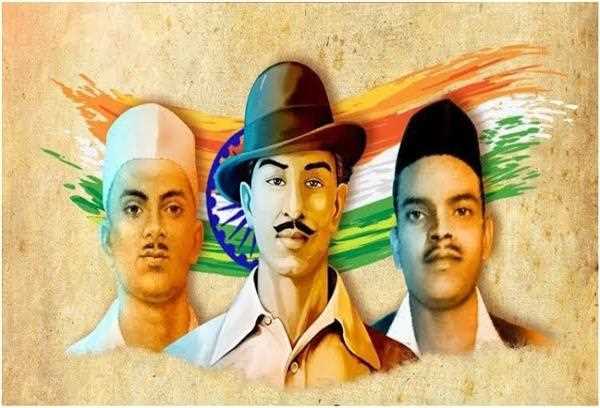Mahatma Gandhi, also known as the Father of the Nation, played a pivotal role in India's struggle for independence from British rule. While he is widely regarded as a leader who fought for the rights of the oppressed, there were certain individuals he did not support, including Bhagat Singh, Azad, and Rajguru. The reasons behind his stance are complex and can be attributed to his philosophy of non-violence and his approach to the freedom struggle.
Mahatma Gandhi believed in the power of non-violent resistance as a means to achieve social and political change. He advocated for peaceful protests, civil disobedience, and non-cooperation with the British government. In contrast, Bhagat Singh, Azad, and Rajguru were revolutionary leaders who believed in the use of violence to achieve freedom for India. They carried out bombings, assassinations, and other acts of violence against British officials, which Gandhi strongly opposed.
Gandhi saw violence as counterproductive to the struggle for independence, as it could lead to more violence and bloodshed. He believed that non-violent resistance was a more effective way of bringing about change, as it appealed to the conscience of the oppressor and the international community. In his view, violence only served to alienate potential allies and give the British government an excuse to use more repressive measures.
Moreover, Gandhi believed that the use of violence was unethical and went against the principles of Ahimsa (non-violence) and Satyagraha (truth-force) that he espoused. He believed that violence only led to a cycle of violence, and that the end did not justify the means. Gandhi saw Ahimsa and Satyagraha as a way to transform society from within and create a more just and equitable world.
Another reason why Gandhi did not support Bhagat Singh, Azad, and Rajguru was that he saw them as a threat to the unity of the freedom movement. Gandhi believed that the struggle for independence needed to be a united front, with different groups working together towards a common goal. However, the revolutionary leaders, including Bhagat Singh, Azad, and Rajguru, had their own agenda and methods, which did not align with Gandhi's approach. This led to a rift within the freedom movement and created divisions that could have weakened the struggle for independence.
In conclusion, Mahatma Gandhi did not support Bhagat Singh, Azad, and Rajguru for freedom due to his philosophy of non-violence, his ethical beliefs, and his approach to the freedom struggle. While the revolutionary leaders were instrumental in the fight for independence, their methods and actions went against Gandhi's principles and could have undermined the unity of the freedom movement. Gandhi's approach of non-violent resistance proved to be a powerful force in the struggle for independence and inspired many other movements around the world.